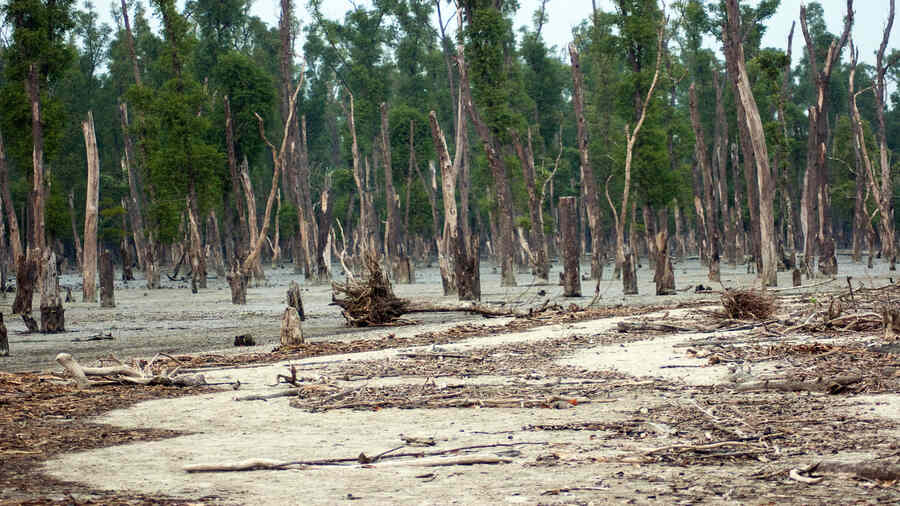The opening day of COP28 in Dubai saw the long-awaited and bitterly debated operationalisation of loss and damage finance facility being approved by the United Nations. The step spells hope for several vulnerable regions of the world, including the Sunderbans in West Bengal and Bangladesh, home to an estimated 7.5 million people.
COP28 president Dr Sultan Al Jaber gavelled the first milestone in the summit. The cumulative financial commitments made by several countries for the Climate Impacts and Response Fund (aka loss and damage fund) runs to the tune of USD280 million that is more than Rs 2,300 crore, according to the COP28 presidency statement. The amount is likely to increase during the climate summit.
According to the agreement text, the fund facility should have “at least” $100 billion a year in loss-and-damage funding by 2030, considered the ‘floor’ (the minimum) and the payments into the fund are to be made on a voluntary basis with the text mentioning that developed countries are “invited” to make contributions.
All developing countries are eligible to directly access resources from the fund, with a minimum percentage allocation floor for least developed countries and small island developing states, which make India and its vulnerable communities in places like the Sunderbans eligible to claim the fund. Developing countries claim that the actual needs are closer to $400 billion per annum.
Experts point out that the agreement stitched by the developed and developing countries at the very beginning may prove to be an important stepping stone in negotiation in coming two weeks where overall financial support from developed countries is likely to be a core issue of concern, as the developed countries are yet to fulfil the USD100 billion commitments made 14 years ago that was supposed to be operative from 2020.
The World Bank has been nominated to manage the fund in the first four years under the pressure of developed countries, while the developing countries pushed for a separate financial body but accepted the proposal of the developed countries to set the fund into motion.
Concerns remain among hopes
Climate experts put the development into perspective.
“Amid the historic decision to operationalise the loss and damage fund within a year of its establishment, it becomes critical to address underlying concerns. The developed countries have attempted to dilute their financial obligations and resisted defining a clear finance mobilisation scale,” said Harjeet Singh, head of global political strategy in Climate Action Network International.
Singh pointed out that vulnerable communities of the Sunderbans in India and Bangladesh, one of the hottest spots of climate impact globally, are now claimants to the fund.
“It is very encouraging that some countries stepped forward today with pledges to get the loss and damage fund off the ground. We hope that world leaders will announce additional funds in the coming days. These pledges represent a dramatic turn of events compared to just two years ago when it wasn’t certain if developed countries could ever be convinced to back a loss and damage fund,” said an expert.
Ani Dasgupta, president and chief executive officer, World Resources Institute, pointed out that the loss and damage fund will be “a lifeline to people in their darkest hour, enabling families to rebuild their homes after disaster strikes, support farmers when their crops are wiped out and relocate those that become permanently displaced by rising seas”.
“These early contributions, though inadequate to the scale of what is needed, will play a critical role in restoring trust among developed and developing countries as the UN climate talks get underway. This progress on loss and damage today is one of many puzzles that need to fall into place for the climate summit to be a success,” an expert said.
“Great news for the Sunderbans, I expect that the process will evolve and materialise soon,” said an Indian expert.

